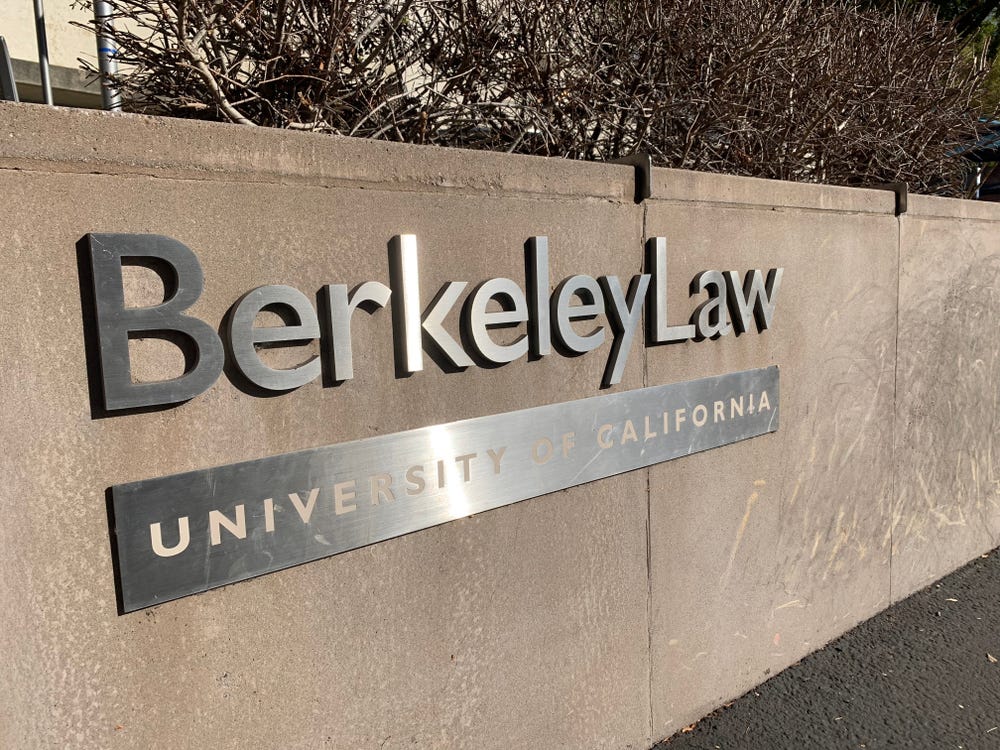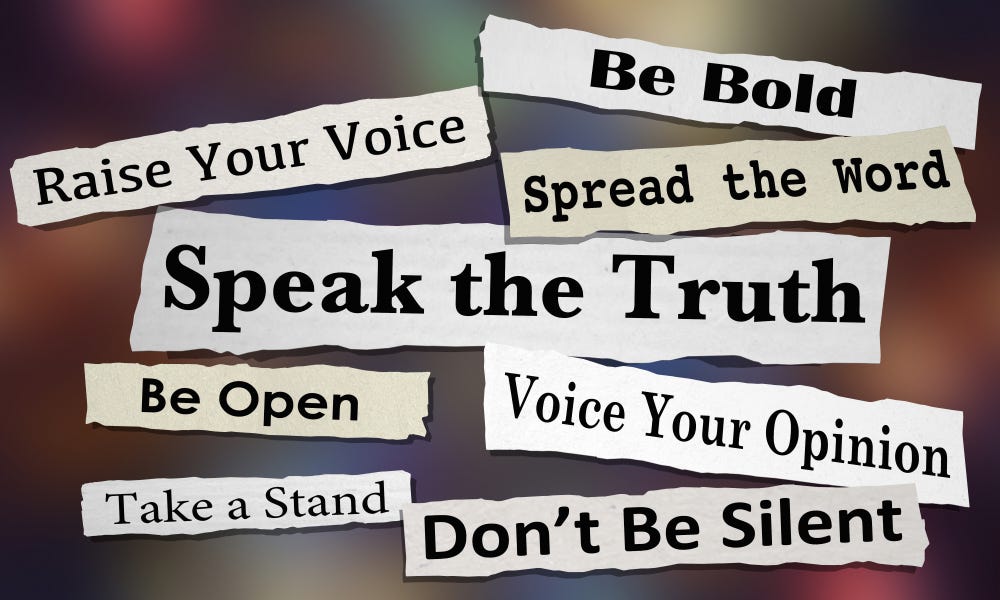E-Pluribus | September 13, 2022
Principles should trump partisanship, more reason for concern at yet another law school, and telling the truth should mean never having to say you're sorry.
A round-up of the latest and best writing and musings on the rise of illiberalism in the public discourse:
Jonah Goldberg: Principles vs. Partisanship
In his latest G-File for The Dispatch, Jonah Goldberg argues that while clearly there’s nothing wrong with debate over and support of or opposition to candidates for public office, an overemphasis on elections can have a pernicious effect on ideology, and obviously Goldberg is mostly concerned with the effects on conservatism.
My objection to the “who should you vote for?” debate isn’t that it’s illegitimate or even necessarily inappropriate. It’s that it is reflective of a larger approach that I think is contaminating much of the right. Concentrating on voting, elections, and party politics can reduce, distort, or subsume the role of conservative intellectuals (for want of a less pompous term) to a partisan calculus. To National Review’s credit, nobody disputes that Masters behaved dishonorably, nor do they dispute that election deniers and defenders of the January 6 riot hold indefensibly wrong opinions.
[ . . . ]
The problem on the right is more complicated, at least in part because most right of center journalism is open and honest about its biases in ways the mainstream media isn’t. I think this is a good thing, not least because being honest—with your readers and yourself—is its own defense. But most right of center journalism is also opinion journalism. We’re doing our part to change that at The Dispatch, but given the asymmetry of the media landscape, we could quintuple our reporting staff and budget and it would still be a drop in the bucket.
My concern here isn’t about media criticism, but conservatism. In the 1950s and 1960s, conservatives had the luxury of relative irrelevance in partisan politics. They could take positions without much sense of how they would affect elections. Our libertarian friends over at Reason have a similar advantage today. I don’t mean this—at all—as an insult. I mean that they are fully aware that neither party is all that accommodating of them, so they have the freedom to vent their contempt or praise for politicians and policies without too much concern about electoral politics.
Read it all.
Richard L. Cravatts: Muzzling Free Speech at Berkeley Law
Citing two other recent examples of anti-free speech behaviour at prestigious law schools, Richard Cravatts at Minding The Campus goes on to describe another such incident at UC Berkeley. In the name of taking an “anti-racist” stance, a pro-Palestinian activist student group has proposed a bylaw that it is urging other groups to adopt as well that would ban invitations to pro-Israel speakers.
The latest example of this unfortunate trend took place at the UC Berkeley School of Law, where an activist student group, Law Students for Justice in Palestine (LSJP), initiated a campaign to convince some of the other 100 student organizations at the school to adopt an anti-Israel bylaw the group had pre-written.
“LSJP is so excited to announce that multiple student affinity groups and clubs at Berkeley Law have adopted a pro-Palestine bylaw divesting all funds from institutions and companies complicit in the occupation of Palestine, and banning future use of funds towards such companies!” the group wrote in an August Instagram post. “LSJP is calling ALL student organizations at Berkeley Law to take an anti-racist and anti-settler colonial stand and adopt the bylaw into their constitutions ASAP!”
In addition to urging other student groups to support the ongoing boycott, divestment, and sanctions (BDS) campaign against Israel, the bylaw included troubling language that seeks to expunge any speech that might be considered pro-Israel or pro-Zionist, even speech meant to correct the many factual and historical inaccuracies in the pro-Palestinian narrative inherent in this insidious bylaw.
“[I]n the interest of protecting the safety and welfare of Palestinian students on campus,” the suggested language read, groups who adopt this bylaw “will not invite speakers that have expressed and continued to hold views or host/sponsor/promote events in support of Zionism, the apartheid state of Israel, and the occupation of Palestine [emphasis added].”
And in Orwellian language attempting to paint bigotry as virtue, cooperating student groups, the bylaw read, will proclaim that they are “publicly stipulating the organization’s position of anti-racism and anti-settler colonialism to speakers, ensuring that proposals for speakers emphasize the organization’s desire for equality and inclusion,” all of this for the purpose, of course, of creating “a safe and inclusive space for Palestinian students and students that are in the support of the liberation of Palestine . . .”
Read the whole thing.
Jeffrey Herf: Never Apologize for Trying to Tell the Truth
University of Maryland, College Park professor Jeffrey Herf writes at Quillette about the meltdown over President of the American Historical Association James Sweet’s recent article cautioning historians about “presentism,” the application of modern political ideology to historical events. Herf says the proper teaching of history requires courage to speak the truth regardless of the current climate of revisionism lest one cede power to the loudest and angriest voices.
On August 17th, 2022, James Sweet, President of the American Historical Association and Distinguished Professor of History at the University of Wisconsin-Madison, published a column in the AHA’s newsletter, Perspectives, entitled “Is History History?: Identity Politics and Teleologies of the Present.” Sweet’s scholarly work has focused on the social and cultural history of Africans in the Atlantic world, and his essay criticized the impact of “presentism”—that is, the effort in much recent historical practice to view the past primarily through the lens of contemporary politics. He bluntly warned, “If history is only those stories from the past that confirm current political positions, all manner of political hacks can claim historical expertise.”
As if on cue, a Twitter storm broke out. Some users on the platform demanded that Sweet resign—his article was reprehensible, they said, because it gave ammunition to the political Right. Two days later, on August 19th, 2022, rather than defend his essay, Sweet issued a distressed and distressing public apology.
[ . . . ]
Professor Sweet’s tenure at the University of Wisconsin-Madison is secure. And he is the president of the American Historical Association. Yet, with nothing at all to fear, he apologized and has thereby inflicted unnecessary damage on his profession and on the AHA. He had nothing to apologize for, but in history and in life, those who have done nothing wrong are often those most ready to apologize, while actual criminals and miscreants offer only denial and excuses. It is impossible to be a serious historian dealing with crucial issues such as the history of slavery—or in my case the history of Nazism, Communism, and antisemitism in modern German history—and not offend someone. That is not our intention, but it comes with the demands of our profession. Seeking truth and evidence about important matters is, inevitably, going to offend someone who has an ideological interest in suppressing the truth and who seeks instead to employ history in the service of their present purposes.
Instead of apologizing for expressing views that drew on a lifetime of scholarship about Africa and the slave trade, James Sweet should have restated the core principles of our profession. His apology stands in contrast to those many scholars and intellectuals around the world who have faced prison, show trials, and death for expressing thoughts that offended the powers that be or contradicted popular passions. In the face of real threats and ostracism for “giving ammunition to the enemy,” they refused to apologize for expressing what they believed to be true. They defended their intellectual and scholarly freedoms. Sweet, on the other hand, gave in to those whose expertise lies in writing angry tweets or group emails.
Read it all here.
Around Twitter
Texas A&M will be glad when this week is over. First, Appalachian State and now this. Via Aaron Sibarium and the Washington Free Beacon:
Uju Anya’s tweet aimed at Queen Elizabeth was deleted and Twitter (according to her) briefly suspended her account, but the Carnegie Mellon professor is back and her employer (as well as a large group of students) have stood behind her right of freedom of expression:
And finally, some inspiring words from Olympic champion Jesse Owens on the occasion of what would have been his 109th birthday, via the Foundation Against Intolerance & Racism (FAIR)":











